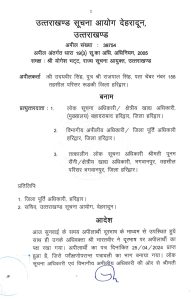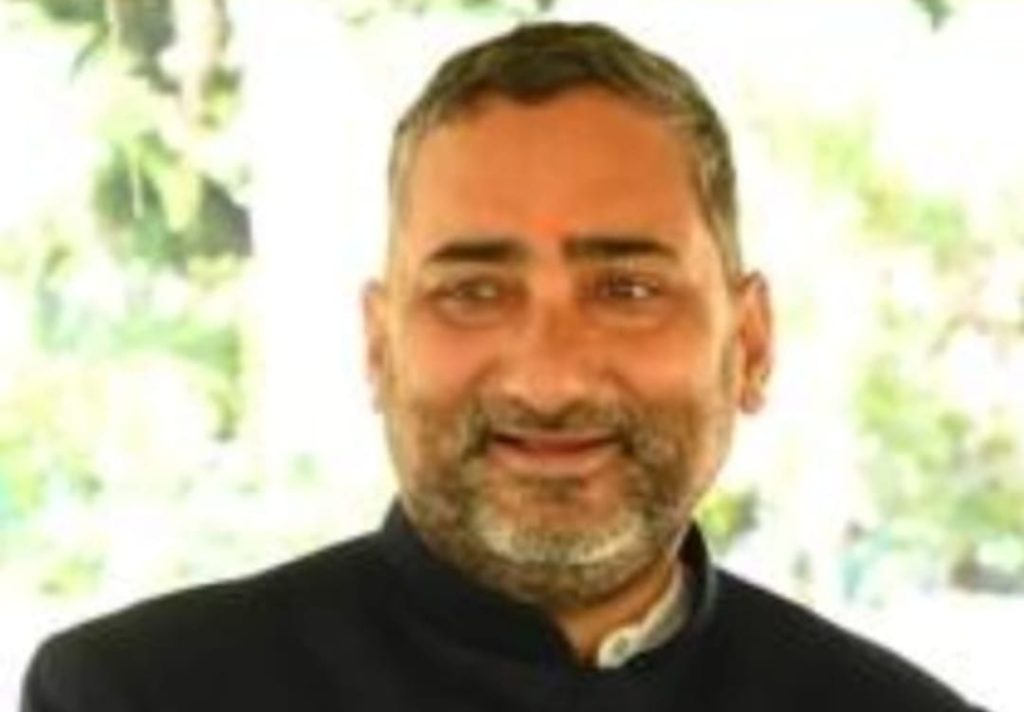CCTV footage is a record available in electronic form, which cannot be denied on demand under RTI unless it is a threat to the sovereignty, security and personal safety of the state. The Public Information Officer should preserve the desired video footage separately before refusing to provide information citing Section (8) of the RTI Act, citing threat to security and sovereignty. There is no justification for refusing to provide the desired footage to the applicant under RTI without preserving it. Such refusal raises questions on the sincerity of the PIO towards RTI and is a crime of hiding/destroying evidence. The State Information Commission, in a decision on information regarding CCTV footage under RTI, has clarified this and imposed a fine of Rs. 25,000 on the PIO of the Food Department of Haridwar for refusing to provide CCTV footage without preserving it, and has informed that the CCTV footage sought under RTI should be preserved till the time limit of second appeal as per the provisions of the Act.
Udayveer Singh, resident of Roorkee, District Haridwar, through a request letter dated 02/06/2023, had sought the recording of the CCTV camera installed in the office of the District Supply Officer, Haridwar from 10 am to 3 pm on 25.05.2023, in relation to which Poonam Saini, as Public Information Officer, sent information to the appellant on 04/07/2023, in which it has been mentioned that there is no obligation to give information, citing Section 8(1)(ch) of the Right to Information Act. When this case was heard by Shri Yogesh Bhatt, State Information Commissioner, the Public Information Officer stated in the hearing that at the time of installing the CCTV cameras, no order or instruction was received from the head of the office regarding backup/preservation of the footage of the CCTV camera, as a result of which the footage of the CCTV camera has never been preserved.
Yogesh Bhatt, State Information Commissioner, clarified in his order that often the Public Information Officers refuse to provide CCTV footage citing the exemption provisions of Section (8) of the Right to Information Act. It is clarified that under Section 2(t) of the Right to Information Act, CCTV footage can be obtained under ‘information’ because it is a record available in electronic form. CCTV footage is helpful in confirming events and statements along with being evidence. Therefore, the Public Information Officer cannot refuse to provide information under the Right to Information Act to the extent that the desired CCTV footage is not a threat to the security, sovereignty of the state or the personal safety of anyone. Sovereignty and security are often the arguments given on the demand for CCTV footage under the Right to Information; it is not necessary that this argument is appropriate in every case. Mostly this argument is used with the intention of not providing CCTV footage. Undoubtedly, it is not easy to decide whether any CCTV footage is a threat to security or sovereignty or not; If the Public Information Officer refuses to provide CCTV footage on this basis, the intention of providing information should not be questioned, but the question arises when the footage sought under RTI is not preserved and the desired footage is deleted before the first or second appeal is disposed of and the matter is closed by informing about the deletion of the footage during the hearing. This is very serious in relation to CCTV footage. It is made clear to the Public Information Officer that the Public Information Officer has the right to decide not to provide the information desired under RTI, considering the CCTV footage under Section (8) of the Act, in the situation when the desired footage has been preserved by him. Refusing to provide CCTV footage without preserving the desired footage, citing Section (8) of the Act, is like destroying evidence.
It is clarified that before any public authority refuses to provide CCTV footage under the Right to Information Act, it must be preserved till the time limit of second appeal under the Right to Information Act. All public authorities should also be duly instructed in this regard to the Public Information Officers.
In the present appeal, the explanation submitted by Poonam Saini, the then Public Information Officer, in relation to the show cause notice issued at the last hearing was not found satisfactory and in accordance with the Right to Information Act, and after considering the entire circumstances, a penalty of Rs. 25,000/- (Rupees twenty five thousand) was imposed on Poonam Saini, the then Public Information Officer, with a warning that in future she should be alert towards the provisions of the Right to Information Act.


